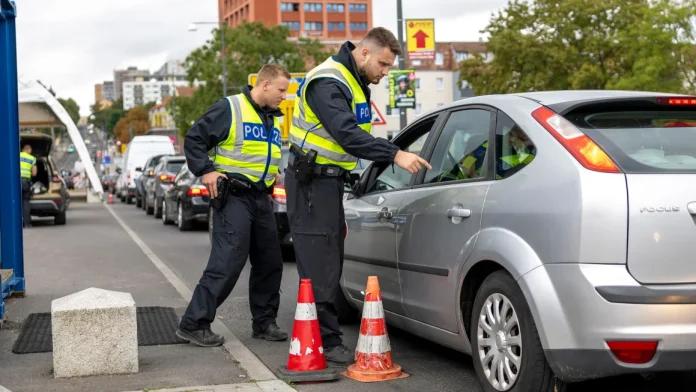Germany is expanding border controls at its frontiers with all nine of its neighbours from Monday to stop illegal migrants, prompting protests from other EU members.
Berlin announced the sweeping measure on Sunday after a series of deadly terrorist attacks that sparked public fear and boosted support for the Alternative for Germany (AfD) party.
Interior Minister Nancy Faeser said the move was aimed at curbing illegal migration and “putting an end to criminals, identifying and stopping them at an early stage.”
The border controls will be in place for six months and are expected to include temporary facilities at land border crossings and random checks by federal police. Poland and Austria have expressed concern and the European Commission has warned that members of the 27-nation bloc should only introduce such measures in exceptional cases.
Germany is at the heart of Europe and borders nine countries that are part of the visa-free Schengen zone, designed for the free movement of people and goods.
Before the restrictions were announced, border controls were already in place with Poland, the Czech Republic, Austria and Switzerland. They will now be extended to Germany’s borders with France, Luxembourg, the Netherlands, Belgium and Denmark.
Faeser also said the government hoped to minimise the impact on people living and working in the border regions and promised “coordination with neighbouring countries.”
Spike in crimes
Germany has been rocked by a string of extremist attacks in recent weeks, fuelling public anger.
Last month, a knife-wielding male attacker killed three people and injured eight others at a festival in the western city of Solingen. The Syrian suspect, allegedly linked to the Islamic State group, was destined for deportation but managed to evade authorities.
The enforcement failure has sparked fierce debate ahead of two regional elections in the country’s former communist east, where the anti-immigration AfD party posted unprecedented results.
With national elections looming next year, Chancellor Olaf Scholz’s government is under intense political pressure to toughen its stance on migrants and asylum seekers.
